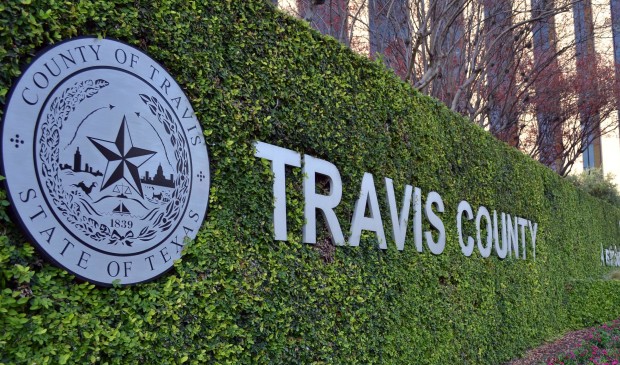Travis County settles on $7.3M in direct assistance to smaller cities
Monday, June 8, 2020 by
Jessi Devenyns Travis County will no longer be solely responsible for portioning out the $61.1 million to assist in disaster relief efforts during the pandemic. On June 2, the Commissioners Court unanimously voted to allocate $7.3 million, or $55 per Travis County resident, in the surrounding municipalities, excluding Austin, and allow individual cities to distribute those funds through hyperlocal programs.
Cities that give Travis County a list of projects approved by the Commissioners Court will get 20 percent of their allotted funds immediately. The county will distribute the other 80 percent through monthly reimbursements. Each municipality will need to spend its allocated funds by Oct. 30 and report all expenditures to the county by Nov. 20.
“This is not a negotiable document. This is the contract that is available,” Commissioner Brigid Shea said.
Twenty-one municipalities in Travis County did not receive direct allocations of financial assistance either from the state or the federal government. Tuesday’s offer comes after those cities jointly requested a total of $26.2 million from the county’s total federal assistance of $61.1 million. The dollar amount solicited by the cities was also done on a per capita basis, but they asked for $197 per person for the 133,000 individuals in these jurisdictions.
Instead, the commissioners landed on a distribution of $55 per person, for a total of $7.3 million. Although county planning and budget staff presented various direct assistance funding levels last week, none of the proposals were adopted.
The direct per capita allocation will be made available in addition to the other programs that the county has already rolled out and are available to residents outside of Austin. These programs include a commitment of $10 million to aid small businesses and $10 million for direct rental and mortgage assistance.
Due to existing programs offered by the county, commissioners are requesting that cities have their programs approved by the Commissioners Court prior to funding the initial 20 percent. By following a reimbursement strategy for the remaining 80 percent of funds, the county can maintain oversight of individual programs that are set up in neighboring communities.
Federal law says aid dollars distributed under the CARES Act may not be spent on duplicate programming. If cities set up emergency aid programs that duplicate existing county programs, Travis County will be responsible for reimbursing the federal government for those funds. The Commissioners Court additionally voted unanimously to issue a waiver of liability that will make it the responsibility of individual cities that receive county dollars to refund any federal reimbursements that the county pays.
“The ability to vet and approve before advancing (the money) gives us a bit more leverage and protection,” said County Judge Sam Biscoe.
Mayor Kara King from Bee Cave told the commissioners she was supportive of the use of a waiver. However, King asked the court to direct the full $26.2 million originally requested by the cities and to do so in a lump sum. She explained that a 20 percent advance with monthly installments “makes it very hard to budget for an assistance program.”
However, the commissioners took the stance that the compromise they outlined will allow for more local assistance as well as federal compliance. “We’ve grappled with this to both try and offer what we think is a good standard and at the same time try and protect the county,” Shea said.
The commissioners said it was their intent to get money to the surrounding municipalities quickly and directed staff to draw up a document that will return next week for some fine-tuning of the allocations.
The Austin Monitor’s work is made possible by donations from the community. Though our reporting covers donors from time to time, we are careful to keep business and editorial efforts separate while maintaining transparency. A complete list of donors is available here, and our code of ethics is explained here.
You're a community leader
And we’re honored you look to us for serious, in-depth news. You know a strong community needs local and dedicated watchdog reporting. We’re here for you and that won’t change. Now will you take the powerful next step and support our nonprofit news organization?










